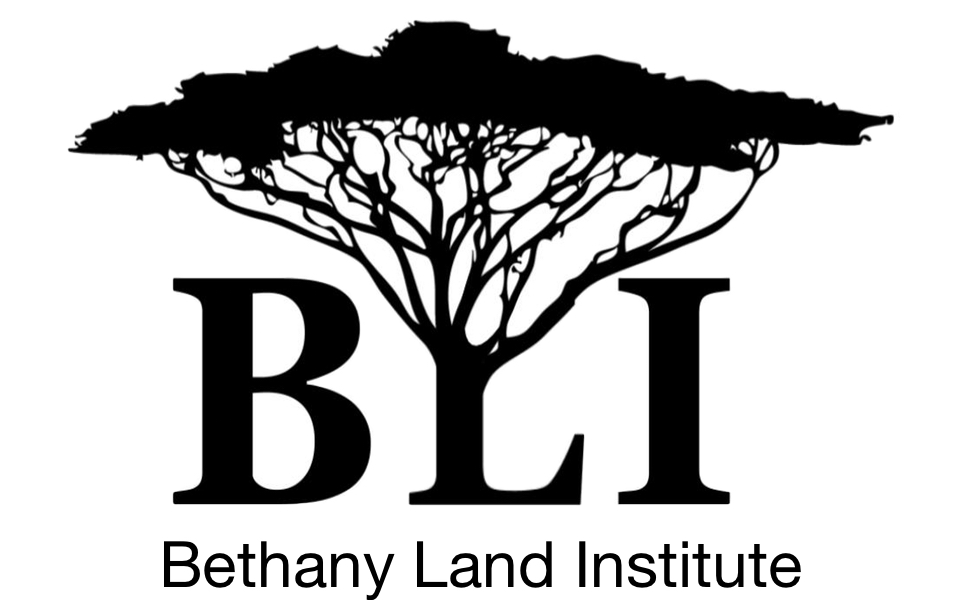The Inspiration behind Bethany Land Institute
In 2012, three Ugandan Catholic priests: Fr. Emmanuel Katongole, Fr. Cornelius Ssempala, and Fr. Anthony Rweza began discussing the problems of deforestation, poverty and land depletion around their homes in rural Uganda. After researching successful agricultural training models and consulting with ecological and farming leaders, they bought an 85-acre plot of land in Luweero, Uganda, using their own funds, to plant a forest and to set up a model sustainable farm. Reading Pope Francis’ encyclical letter Laudato Si’ in 2015 led them not only to see that that the major problems of deforestation, food insecurity in Africa and poverty in Africa are interconnected but that addressing them requires “an education program” to cultivate a “distinctive way of looking at things, a way of thinking, …a lifestyle and a spirituality” (L.S. #111) They decided to build BLI to serve as a demonstration of the kind of integral ecology that Pope Francis calls for. Thus, Bethany Land Institute was formed as an educational program to form especially the poor and excluded in Africa, in the practices, lifestyle and spirituality of sustainable land care, food production, and economic expertise in rural Africa.
BLI's three founders were all born and raised in Uganda. All three founders have studied and frequently travel internationally, which has given them a unique perspective on the challenges and opportunities in Uganda. Father Emmanuel Katongole is the visionary behind the Bethany Land Institute. Born in rural Uganda, Fr. Katongole is a Professor of Theology and Peace Studies at the University of Notre Dame in South Bend, IN. He splits his time between Uganda and the United States. He is the author of several books concerning the intersection of Africa, the environment, and reconciliation. Prior to founding the BLI, in 2003 Fr. Katongole co-founded Share the Blessings, a non-profit organization operating in Uganda that focuses on bringing clean water and education to communities in need. In 2006, Fr. Katongole co-founded Duke University's Center for Reconciliation. Under Fr. Katongole's guidance, the center went on to co-found the Africa Great Lakes Initiative which inspires, forms, and supports thousands of leaders in the Great Lakes Region of east Africa in their work of peace and reconciliation.
The BLI’s two other founders, Fr. Cornelius Ssempala and Fr. Anthony Rzewa both reside in Kampala full-time.
Fr. Ssempala is a Philosophy Professor at Makerere University in Kampala; his farm outside of Kampala is his pride and joy. He is the BLI Site Manager, in charge of overseeing the construction of the campus ensuring that the campus is built to the correct specifications, and is built on-time and on-budget, using as many local resources and merchants as possible.
Fr. Anthony Rzewa is the Director of Interservice - the financial, business, and procurement department of the Uganda Catholic Bishops Conference. As the BLI Financial Director, he is in charge of overseeing the collection, disbursement and recording of all monies related to BLI.
The three founders combined have an incredibly deep knowledge of the practical, theological, political, organizational, economic and educational issues facing Ugandans today. All three leaders are strongly committed to and involved in the operations of the BLI.
The Spirit of Bethany
The stories associated with the village of Bethany in the Bible provide powerful images to what the church is called to be in relation to Africa in general, rural Africa in particular.[1]Accordingly “Bethany” serves as a good model and inspiration for the vision and mission of the Land Institute. For a number of reasons:
-
In the Bible, Bethany is specifically referred to as a “village” (LK 10:38)
-
In Jesus’ time, Bethany was a village where the poor and excluded lived – thus the name “Bethany” (Beit – aeAniae: which means “home of the poor”) – just like many African villages.
-
It was the home of Martha who “welcomed Jesus in her house” (Lk 10: 38). Martha a model of a hard working, productive woman and community leader.
-
It is also the home of Mary, Martha’s sister who sat at Jesus feet. A model for discipleship and personal intimacy with the Lord
-
It is a place of resurrection: at Bethany Lazarus was sick (Jn 11), died, but was raised to life, which points to the kind of ‘resurrection’ we want to see realized through the Bethany Land Institute.
-
Bethany is also a place of anointing, where Mary anointed Jesus head and feet and filled the entire house with a new fragrance (Jn 13:1-3).
-
Bethany is also a place of revolution: Following the resurrection Jesus meets the disciples at Bethany (LK24:50-53) and sends them on mission into the world on mission. At Bethany Land Institute we seek nothing less than a revolution – a quiet revolution of a new way of living in Africa.
Thus not only does Bethany serve as a good model and inspiration for the mission of BLI, the latter will endeavor to recreate and be shaped and driven by the ethos and spirituality of Bethany: a spirituality of discipleship, productivity, hospitality, resurrection, anointing and of a revolutionary (new aroma) mission of servant leadership in Africa.
“Strategies for a solution demand an integrated approach to combating poverty, restoring dignity to the excluded, and at the same time protecting nature."
— Laudato Si, # 139
Bethany Land Institute is working to put the message behind the ‘Laudato Si’ into action.
